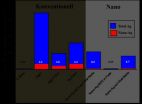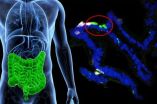(Press-News.org) Philadelphia, PA, June 30, 2014 – Current pharmacotherapies for addiction follow the dictum "one size fits all". Medications are prescribed in the same way for all patients, regardless of whether they have just started experimenting with a drug or have an established drug habit. Even more troubling, there are no FDA-approved pharmacotherapies for some addictions, such as compulsive cocaine use.
Perhaps testing drugs in ways that focus on particular phases of addiction or particular clinical features of addiction, such as a patient's level of impulsivity, might advance the development of drug treatments for cocaine addiction.
Addiction is characterized by a transition from strategic drug-seeking (i.e., where a decision is made to try a drug to generate a desired effect) to habitual drug-seeking (i.e., where the behavior is triggered by the availability of drugs, particularly in contexts associated with drug use). Habitual drug use is less dependent than strategic use on whether the person actually enjoys the effects of the drug or whether there are negative subjective effects or problems associated with taking the substance.
The transition from strategic to habitual drug-seeking is associated with changes in the brain, where dopamine systems are involved in shifting the representation of drug-taking in the striatum region of the brain from the lower (ventral) part of the striatum, implicated in reward, to the higher (dorsolateral) striatum, implicated in habits.
Researchers now have identified the stages of this process that are sensitive to blockade of dopamine receptors, potential therapeutic targets, and the important role that impulsivity plays in this process. They report their results in the current issue of Biological Psychiatry.
They administered a dopamine receptor-blocking drug, α-flupenthixol, directly into the dorsolateral striatum of rats at different phases of addiction. They found that the rats transitioned from insensitivity to sensitivity to the drug's inhibitory effects on cocaine-seeking, but that this transition was also influenced by the inherent impulsivity of the rats.
Early in the addiction process, all rodents were insensitive to the drug's effects, but it did suppress drug-seeking in animals with long-standing cocaine self-administration. They also found that highly impulsive animals made the transition from drug insensitivity to sensitivity more slowly than animals with low levels of impulsivity.
"The results of this study are important because they show that although both impulsive and non-impulsive rats developed cocaine-seeking habits, this was delayed in high impulsive rats," said first author Dr. Jennifer Murray, from University of Cambridge.
These data suggest that impulsivity does not simply promote compulsivity through the facilitation of habits, but rather that these are interacting independent processes.
Murray added, "It is suggested that vulnerability to addiction conferred by impulsivity is less influenced by the propensity to develop drug-seeking habits and more by the inability of an individual to regain control over these habits that are rigidly and maladaptively established in the brain."
"The notion that particular brain mechanisms are engaged only at particular phases of the addiction process strikes me as an important insight that has yet to be harnessed in developing new medications for addiction treatment," said Dr. John Krystal, Editor of Biological Psychiatry. "This study highlights that dopamine receptor blockers might play a role, but only at particular phases of the addiction process."
INFORMATION:
The article is "Increased Impulsivity Retards the Transition to Dorsolateral Striatal Dopamine Control of Cocaine Seeking" by Jennifer E. Murray, Ruth Dilleen, Yann Pelloux, Daina Economidou, Jeffrey W. Dalley, David Belin, and Barry J. Everitt (doi: 10.1016/j.biopsych.2013.09.011). The article appears in Biological Psychiatry, Volume 76, Issue 1 (July 1, 2014), published by Elsevier.
Notes for editors
Full text of the article is available to credentialed journalists upon request; contact Rhiannon Bugno at +1 214 648 0880 or Biol.Psych@utsouthwestern.edu. Journalists wishing to interview the authors may contact Dr. Jennifer Murray at +44 (0) 1223 765285 or jem98@cam.ac.uk.
The authors' affiliations, and disclosures of financial and conflicts of interests are available in the article.
John H. Krystal, M.D., is Chairman of the Department of Psychiatry at the Yale University School of Medicine, Chief of Psychiatry at Yale-New Haven Hospital, and a research psychiatrist at the VA Connecticut Healthcare System. His disclosures of financial and conflicts of interests are available here.
About Biological Psychiatry
Biological Psychiatry is the official journal of the Society of Biological Psychiatry, whose purpose is to promote excellence in scientific research and education in fields that investigate the nature, causes, mechanisms and treatments of disorders of thought, emotion, or behavior. In accord with this mission, this peer-reviewed, rapid-publication, international journal publishes both basic and clinical contributions from all disciplines and research areas relevant to the pathophysiology and treatment of major psychiatric disorders.
The journal publishes novel results of original research which represent an important new lead or significant impact on the field, particularly those addressing genetic and environmental risk factors, neural circuitry and neurochemistry, and important new therapeutic approaches. Reviews and commentaries that focus on topics of current research and interest are also encouraged.
Biological Psychiatry is one of the most selective and highly cited journals in the field of psychiatric neuroscience. It is ranked 4th out of 135 Psychiatry titles and 13th out of 251 Neurosciences titles in the Journal Citations Reports® published by Thomson Reuters. The 2012 Impact Factor score for Biological Psychiatry is 9.247.
About Elsevier
Elsevier is a world-leading provider of information solutions that enhance the performance of science, health, and technology professionals, empowering them to make better decisions, deliver better care, and sometimes make groundbreaking discoveries that advance the boundaries of knowledge and human progress. Elsevier provides web-based, digital solutions — among them ScienceDirect, Scopus, Elsevier Research Intelligence and ClinicalKey — and publishes nearly 2,200 journals, including The Lancet and Cell, and over 25,000 book titles, including a number of iconic reference works.
The company is part of Reed Elsevier Group PLC, a world-leading provider of professional information solutions in the Science, Medical, Legal and Risk and Business sectors, which is jointly owned by Reed Elsevier PLC and Reed Elsevier NV. The ticker symbols are REN (Euronext Amsterdam), REL (London Stock Exchange), RUK and ENL (New York Stock Exchange).
Media contact
Rhiannon Bugno
Editorial Office Biological Psychiatry
+1 214 648 0880
Biol.Psych@utsouthwestern.edu
Cocaine addiction: Phase-specific biology and treatment?
New findings from a study in Biological Psychiatry
2014-06-30
ELSE PRESS RELEASES FROM THIS DATE:
Silver in the washing machine
2014-06-30
If it contains 'nano', it doesn't primarily leak 'nano': at least that's true for silver-coated textiles, explains Bernd Nowack of the Technology and Society division at Empa. During each wash cycle a certain amount of the silver coating is washed out of the textiles and ends up in the waste water. Empa analysed this water; it turned out that nano-coated textiles release hardly any nano-particles. That's quite the opposite to ordinary coatings, where a lot of different silver particles were found. Moreover, nano-coated silver textiles generally lose less silver during washing. ...
Gene variants found that increase pain sensation after common childhood surgery
2014-06-30
In the first genome-wide analysis of postsurgical pain in children, pediatric researchers identified variations in genes that affect a child's need for pain-control drugs. The findings suggest that at some point physicians may calibrate pain-medication dosages according to a child's individual genetic makeup.
"Although this research is only a first step for our team, it provides tremendous new insight into the biological mechanisms and brings us a little closer to personalizing medicine for pain control," said Scott D. Cook-Sather, M.D., a pediatric anesthesiologist at ...
It may take guts to cure diabetes
2014-06-30
New York, NY (June 30, 2014) — By switching off a single gene, scientists at Columbia University's Naomi Berrie Diabetes Center have converted human gastrointestinal cells into insulin-producing cells, demonstrating in principle that a drug could retrain cells inside a person's GI tract to produce insulin.
The new research was reported today in the online issue of the journal Nature Communications.
"People have been talking about turning one cell into another for a long time, but until now we hadn't gotten to the point of creating a fully functional insulin-producing ...
Newly identified gene provides reliable visual cue for oil palm fruit ripeness
2014-06-30
A genetic discovery by a team of scientists from the Malaysian Palm Oil Board (MPOB), aided by scientists from Orion Genomics, paves the way for increased production of palm oil, which accounts for 45 percent of the world's edible oil, while also helping to conserve sensitive wild habitats at risk of being turned into agricultural land.
In the study published in the journal Nature Communications, the scientists identified the VIR gene as responsible for fruit color. Currently, the majority of the oil palm fruit harvested in Malaysia and Indonesia is the nigrescens variety ...
No link between fertility drugs and breast, ovarian and uterine cancers
2014-06-30
Munich, 30 June 2014: There is "little evidence" that the use of conventional fertility hormones used for ovarian stimulation in the treatment of infertility increases the long-term risk of breast and gynecological cancers, according to the results of a substantial 30-year follow-up study. However, the extended use of clomiphene citrate was associated with a higher risk of breast cancer among women who had used the fertility drug for 12 cycles or more. Gonadotrophins, more commonly used for ovarian stimulation today, were not generally associated with any increased risk, ...
Children born to women after fertility treatment at greater risk of psychiatric disorders
2014-06-30
Munich, 30 June 2014: Children born to women with fertility problems have a higher risk of psychiatric disorders than naturally conceived children. The increase in risk was described as "modest" by researchers from Denmark, but was found to persist throughout childhood and into young adulthood.
The results, which are presented today at the 30th Annual Meeting of ESHRE in Munich by Dr Allan Jensen of the Danish Cancer Society Research Center at the University of Copenhagen, were derived from a register study of all children born in Denmark between 1969 and 2006.
From ...
Efficacy doubts over pre-IVF hysteroscopy
2014-06-30
Munich, 30 June 2014: A large multicentre trial seems finally to have resolved one of IVF's long-running controversies - whether the outlook for women with a poor IVF record can be improved by routine hysteroscopy performed before further IVF treatment.(1) For the TROPHY study, whose results are reported today at the 30th Annual Meeting of ESHRE in Munich by Dr Tarek El-Toukhy from Guy's and St Thomas's Hospital, London, has now found no significant difference in IVF success rates between those who had outpatient hysteroscopy performed before their IVF and those who didn't. ...
Study finds videoconferencing with family, friends lowers stress for pediatric patients
2014-06-30
(SACRAMENTO, Calif.) —To ease isolation during extended hospitalizations, UC Davis Children's Hospital offers secure videoconferencing for patients and families. While anecdotal accounts have suggested the Family-Link program enhances quality of life during long hospital stays, clinicians wondered if the technology also offered clinical benefits.
To answer that, a team led by UC Davis professor James Marcin studied 367 children who were hospitalized for at least four days. They found that access to Family-Link significantly reduced patient stress. The study was published ...
One-third of knee replacements classified as inappropriate
2014-06-30
New research reports that more than one third of total knee replacements in the U.S. were classified as "inappropriate" using a patient classification system developed and validated in Spain. The study, published in Arthritis & Rheumatology, a journal of the American College of Rheumatology (ACR), highlights the need for consensus on patient selection criteria among U.S. medical professionals treating those with the potential need of knee replacement surgery.
The Agency for Healthcare Research and Quality reports more than 600,000 knee replacements are performed in the ...
Young teens who receive sexts are 6 times more likely to report having had sex
2014-06-30
A study from USC researchers provides new understanding of the relationship between "sexting" and sexual behavior in early adolescence, contributing to an ongoing national conversation about whether sexually explicit text messaging is a risk behavior or just a technologically-enabled extension of normal teenage flirtation. The latest research, published in the July 2014 issue of the journal Pediatrics, found that among middle school students, those who reported receiving a sext were 6 times more likely to also report being sexually active.
While past research has examined ...
LAST 30 PRESS RELEASES:
Scientists design solar-responsive biochar that accelerates environmental cleanup
Construction of a localized immune niche via supramolecular hydrogel vaccine to elicit durable and enhanced immunity against infectious diseases
Deep learning-based discovery of tetrahydrocarbazoles as broad-spectrum antitumor agents and click-activated strategy for targeted cancer therapy
DHL-11, a novel prieurianin-type limonoid isolated from Munronia henryi, targeting IMPDH2 to inhibit triple-negative breast cancer
Discovery of SARS-CoV-2 PLpro inhibitors and RIPK1 inhibitors with synergistic antiviral efficacy in a mouse COVID-19 model
Neg-entropy is the true drug target for chronic diseases
Oxygen-boosted dual-section microneedle patch for enhanced drug penetration and improved photodynamic and anti-inflammatory therapy in psoriasis
Early TB treatment reduced deaths from sepsis among people with HIV
Palmitoylation of Tfr1 enhances platelet ferroptosis and liver injury in heat stroke
Structure-guided design of picomolar-level macrocyclic TRPC5 channel inhibitors with antidepressant activity
Therapeutic drug monitoring of biologics in inflammatory bowel disease: An evidence-based multidisciplinary guidelines
New global review reveals integrating finance, technology, and governance is key to equitable climate action
New study reveals cyanobacteria may help spread antibiotic resistance in estuarine ecosystems
Around the world, children’s cooperative behaviors and norms converge toward community-specific norms in middle childhood, Boston College researchers report
How cultural norms shape childhood development
University of Phoenix research finds AI-integrated coursework strengthens student learning and career skills
Next generation genetics technology developed to counter the rise of antibiotic resistance
Ochsner Health hospitals named Best-in-State 2026
A new window into hemodialysis: How optical sensors could make treatment safer
High-dose therapy had lasting benefits for infants with stroke before or soon after birth
‘Energy efficiency’ key to mountain birds adapting to changing environmental conditions
Scientists now know why ovarian cancer spreads so rapidly in the abdomen
USF Health launches nation’s first fully integrated institute for voice, hearing and swallowing care and research
Why rethinking wellness could help students and teachers thrive
Seabirds ingest large quantities of pollutants, some of which have been banned for decades
When Earth’s magnetic field took its time flipping
Americans prefer to screen for cervical cancer in-clinic vs. at home
Rice lab to help develop bioprinted kidneys as part of ARPA-H PRINT program award
Researchers discover ABCA1 protein’s role in releasing molecular brakes on solid tumor immunotherapy
Scientists debunk claim that trees in the Dolomites anticipated a solar eclipse
[Press-News.org] Cocaine addiction: Phase-specific biology and treatment?New findings from a study in Biological Psychiatry




